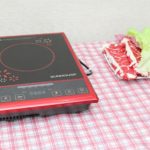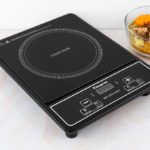An infrared stove operates by using infrared rays to directly transfer heat to the cooking pot. Infrared stoves are increasingly popular because they offer faster cooking times, diverse cooking modes, and integration of multiple modes for safety and environmental protection. However, choosing a suitable pot for an infrared stove may be a challenge for some. In this article, we will guide you on how to choose the right pot when using an infrared stove.
1 Does the infrared stove have pot restrictions?
One common question when using an infrared stove is whether or not it has pot restrictions. Unlike induction stoves, infrared stoves do not have pot restrictions.
You can use pots made from materials such as aluminum, cast iron, stainless steel, clay, and glass. However, it is advisable to avoid using thin-bottomed aluminum pots as they conduct heat well but are prone to burning food. Stone pans, glass pans, cast iron pans, and ceramic pans can also be used on an infrared stove for cooking.
In addition, pots with flat, non-curved, concave or deformed bottoms can maintain balance on an infrared stove without tilting or shaking.
With these advantages, infrared stoves have gained popularity and are widely used in households.
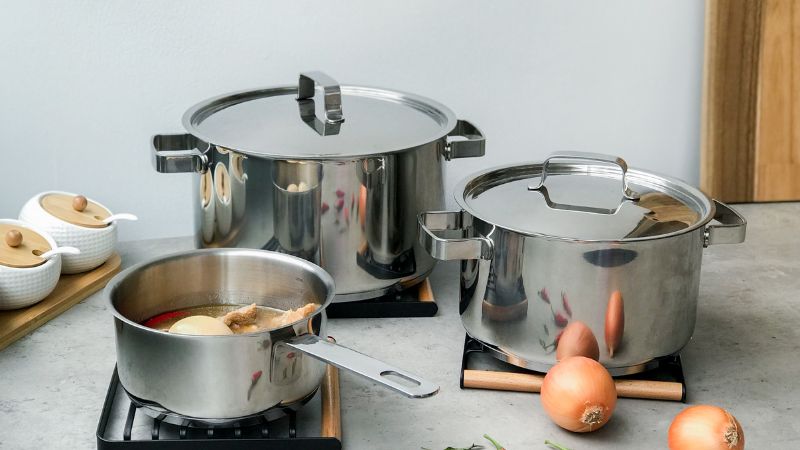
Does the infrared stove have pot restrictions?
2 Why does the infrared stove not recognize the pot?
An infrared stove can cook with all types of pots, but there are cases where the stove may not recognize the pot. One of the main reasons is that the pot has a curved bottom or a diameter that is too large. Using a pot with a curved bottom or a large diameter can significantly reduce cooking efficiency, leading to the stove not recognizing the pot. The appropriate size for an infrared stove is a pot with a flat bottom and a diameter of 10cm to 26cm.
Other possible causes for the infrared stove not recognizing the pot include:
- The pot being too light or too heavy, which prevents proper contact with the stove’s sensor.
- Unstable or interrupted power supply.
- A dirty or damaged sensor on the stove.
- Insufficient contact between the pot and the stove.
To overcome this situation, it is recommended to use pots that are suitable in size and have a flat bottom to ensure proper contact with the stove. If the problem persists, contacting the manufacturer or distributor for support is advised.
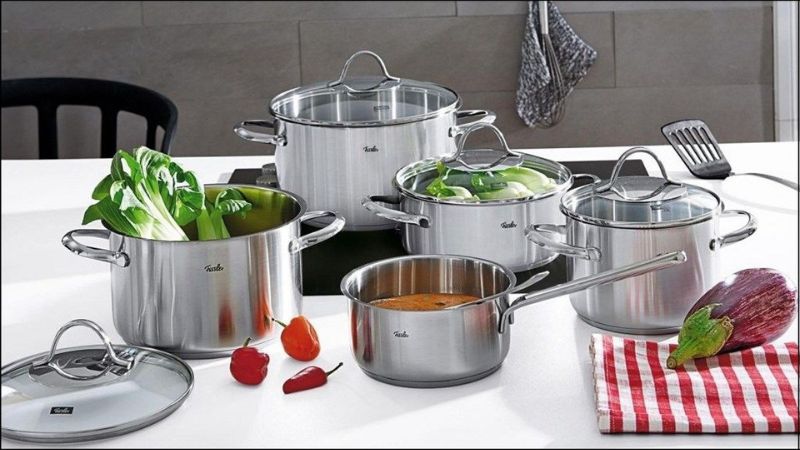
Why does the infrared stove not recognize the pot?
3 Considerations when using pots on an infrared stove
Choosing a suitable pot to buy
When purchasing a pot for an infrared stove, it is important to choose a pot with a suitable size, flat bottom, thickness, and good heat resistance. The pot’s size should range from 12cm to 16cm.
Avoid using pots with thin bottoms
Pots with thin bottoms heat up quickly, increasing the risk of burning food. It is advisable to use pots with thick bottoms and good heat resistance to ensure user safety.
Do not place an empty pot on the stove
Infrared stoves heat up quickly, so it is not recommended to place an empty pot on the stove. This can cause food to burn and potentially damage the pot, especially when frying or stir-frying dishes.
Check the connecting part between the pot and the stove
Prior to using a pot on an infrared stove, it is advisable to check if the connecting part between the pot and the stove has sufficient contact to ensure proper recognition by the stove.
Clean the pot after use
After using a pot on an infrared stove, it is important to clean the pot to maintain hygiene and prolong its lifespan.
Considerations when using pots on an infrared stove
4 Can glass pots be used on an infrared stove?
Glass pots can still be used on an infrared stove. Infrared stoves do not have pot restrictions as they apply the principle of thermal radiation from infrared rays to directly heat various materials such as metal, clay, and glass.
However, when using glass pots on an infrared stove, caution must be exercised to prevent the pot from breaking. Glass pots can break or crack if placed on an excessively hot infrared stove or subjected to strong impacts. It is recommended to handle glass pots gently when placing them on the stove and avoid collisions with other objects.
Furthermore, it is important to ensure that the glass pot is made from safe and heat-resistant materials to prevent any risks to health and preserve the pot’s durability when used on an infrared stove.
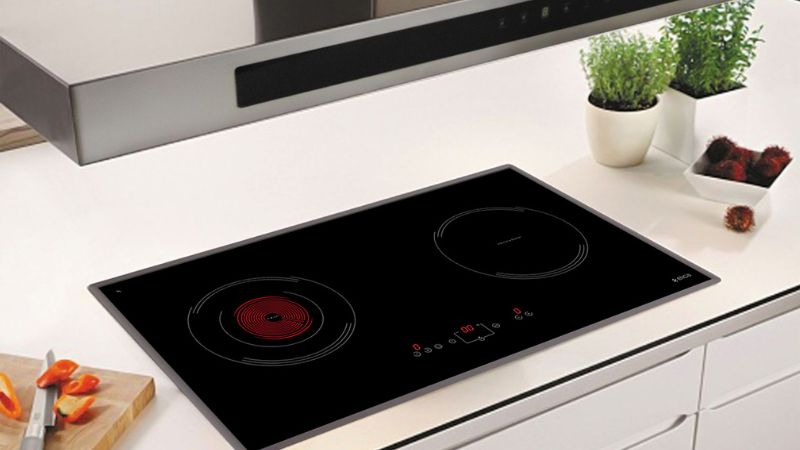
Can glass pots be used on an infrared stove?
5 How to choose a pot for an infrared stove
Pot diameter
The diameter of the pot used on an infrared stove is crucial. A pot with a too large diameter will not reach the necessary temperature for thorough cooking, while a pot with a too small diameter will not cook the food evenly. To achieve optimal cooking performance, it is advised to choose a pot with a diameter ranging from 10cm to 26cm.
Thickness and flat, smooth bottom
A thick pot with a flat, smooth bottom is ideal for use on an infrared stove as it provides better heat transmission and retention. This ensures even and faster cooking. Using a pot with a dented or bulging bottom creates a gap between the stove and the pot, resulting in more heat loss and reduced cooking efficiency.
Materials
Pots can be made of various materials such as stainless steel, aluminum, cast iron, and glass. For an infrared stove, pots made of stainless steel or glass are the best choices as they offer good heat resistance and even heat transfer.
Design
A pot with a simple design that is easy to use and clean is recommended. It should also have sturdy and insulated handles to avoid burns during use.
Features
If you desire to cook different types of food, you can opt for pots with versatile cooking capabilities such as pressure cookers or multi-function pots.
Buy genuine products from reputable sources
When purchasing an infrared stove, it is crucial to buy genuine products from reputable sources. This ensures product quality and guarantees access to complete information and necessary support whenever required.
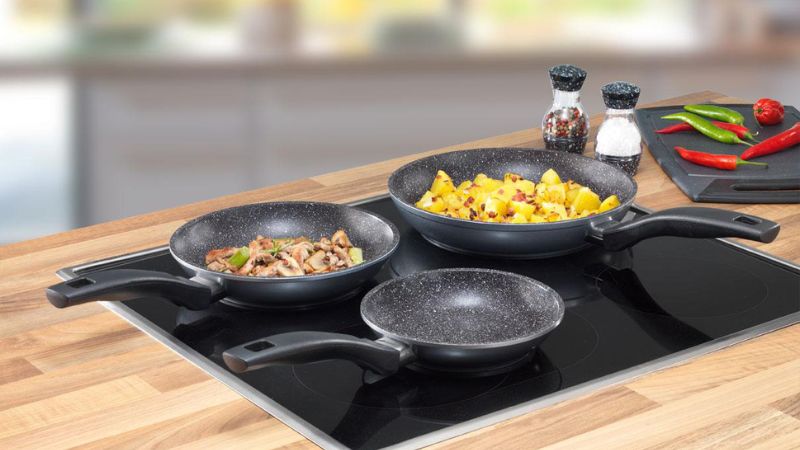
How to choose a pot for an infrared stove
Infrared stoves are increasingly popular among households. We hope that this article has provided you with a better understanding of infrared stoves and how to select a suitable pot for your family’s infrared stove!
Finding an Affordable High-Quality Infrared Cooker
Wondering if you can get a reliable, long-lasting induction cooker without breaking the bank? You can make an informed decision when selecting an affordable electric stove if you follow a few helpful tips. In this article, you’ll learn how to purchase an induction cooker that won’t let you down. Keep reading to find out more.
Clean your stove in three minutes
Glass cooktops, especially those made of glass, tend to get dirty on the top and around the edges; a quick three-minute cleaning trick makes this no longer a concern.

























